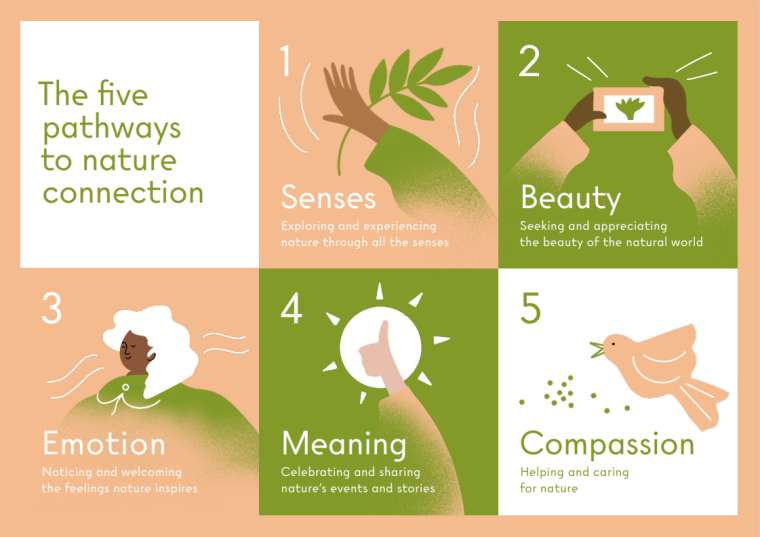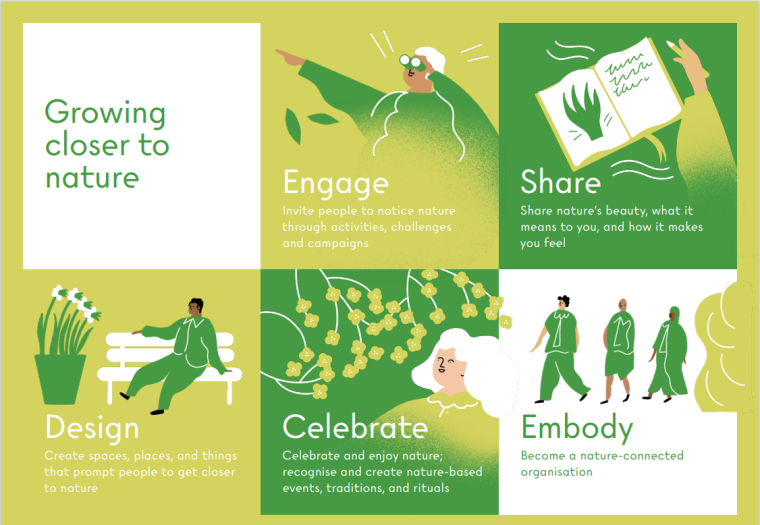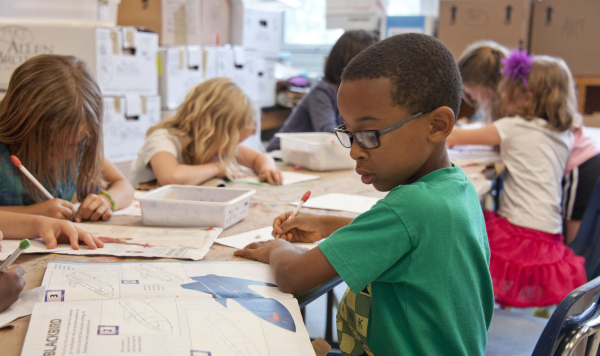The benefits of feeling close to nature have long been documented, and include an improvement to mental wellbeing, greater vitality and happiness, life satisfaction and sense of purpose. But it’s becoming increasingly apparent that people’s degree of connection to nature also influences whether people exhibit behaviours that are kind to the environment.
It’s a win-win to connect with nature, for yourself and for the natural world. Evidence shows that nature connection drops in children from the age of 9-15 years old. That’s why it’s even more important to engage children in activities that promote nature connection. They will learn to enjoy and respect nature and have a more sustainable relationship with the environment.
Getting your students closer to nature
Simply being exposed to nature isn’t enough to increase nature connectedness. Derby University has developed a five-step ‘Pathway to Nature’, which increases nature connection. When thinking about activities for your pupils be sure to incorporate these concepts:

1. Contact – engaging with nature through the senses for pleasure
2. Beauty – taking time to appreciate the beauty of nature and engaging with its aesthetic qualities e.g. appreciating natural scenery.
3. Meaning – considering the impact nature has on you and its place in your life
4. Emotion – reflecting on how being in nature makes you feel
5. Compassion – thinking about the things you can do for natured

For more information on have a look at The Nature Connection Handbook, University of Derby.
Some examples of activities to get you started:
Engage: Ask students to take photos of nature; run a writing about an experience in nature; create art with materials found in nature.
Share: Have a dedicated session where pupils bring stories about nature into class; share images, artwork, nature finds, and nature journals; start a nature book-club.
Design: Create a ‘sit-spot’ for kids to observe the nature around them; install shelters and food sites for wildlife, such as bug houses or bird feeders; get an indoor plant for the classroom.
For more ideas, see Edutopia’s article on ways to connect students to nature.
Take part in 30 Days Wild challenge
The UK’s biggest nature challenge is run by Wildlife Trust and takes place in the month of June. Register your class to take place and you’ll be sent an activity pack to complete for the month. You can help your students as best you can to complete challenges during the school day and offer advice on how they can do it at home and on the weekends.
Some activities are as simple as walking barefoot on grass, reading a book outside or following a bumble bee. More involved activities might include building an insect hotel or visiting a wildlife reserve.
Arrange a litter pick
Go one step further than heading outdoors, pick up litter whilst you’re at it! A great way to not only connect with nature, but contribute to improving the environment and teaching your pupils about the issues with waste.
Contact your local council’s Waste and Recycling teams to see if they are able to provide any assistance with litter picking materials and additional waste and recycling collections. You can certainly go out with your class and litter pick yourself, but this will require you to have the right protective equipment and arranging for the waste and recycling collected to be picked up.
Apply to the Veolia Orchards scheme (if applicable in your borough)
Have the opportunity to have either fruit trees planted, space permitting, or strawberry planters provided for free by Veolia. Students get involved in the planting and looking after the plants, strengthening their bond with the natural world and one day having some delicious fruit to sample! Schools in Camden and Haringey can apply for the Veolia Orchards scheme in September 2024.





